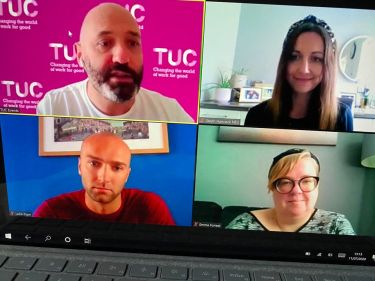General Council Report 2021
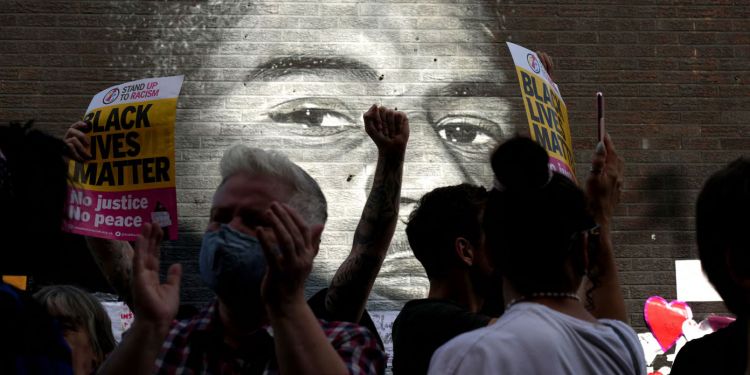
3.1 Introduction
Throughout year the TUC has worked with unions to challenge discrimination and promote equality, and to make the case for decent rights and protections at work. Trade unions have worked throughout the pandemic to keep workplaces safe and protect workers. We have challenged employers and the government over inadequate sick pay that makes it difficult for low-paid workers to self-isolate, failures to provide adequate personal protective equipment (PPE) and testing, and the urgent need for investment in safety regulation and enforcement.
Through the Anti-Racism Taskforce we have worked to confront institutional racism and discrimination at work. The taskforce has set about shining a light on racial injustice in the world of work and focused on organising, bargaining and campaigning to secure real change.
We have taken forward our work on class inequality, highlighting the disproportionate impact of the Covid-19 crisis on working-class people, including many key workers. And we have continued our lobbying and campaigning work on behalf of disabled workers, women and LGBT+ workers, with a strong focus on tackling sexual harassment.
The TUC has also stepped up policy and campaign work around trade union and employment rights, including a day one right to request flexible working for all workers.
3.2 Employment and trade union rights
As noted in resolution 39, the election of the current Conservative government has led to renewed hostility to trade union rights.
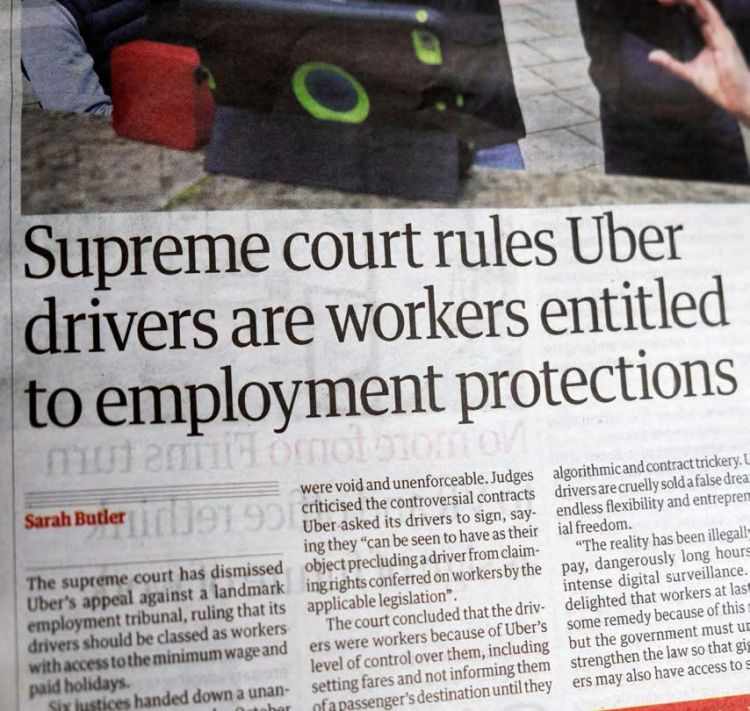
Ministers have brought forward new anti-trade union legislation, with plans to introduce measures to activate powers contained in the Trade Union Act 2016 that would force trade union members to fund the Certification Office (CO), which regulates trade unions. The measures include imposing a levy that could potentially raise millions of pounds with very little to prevent the Certification Officer or her successors massively expanding its activities, paid for by the working people unions represent. They also plan to give it the power to fine unions up to £20,000 for a breach of trade union law and give it wide-ranging powers to investigate complaints, even if brought by someone not in the union, and demand documents. These are straightforward ideologically driven measures designed to inhibit the activities of unions. The General Council will work to oppose the necessary statutory instruments in parliament.
In line with resolution 38, the General Council upholds the principle that workers choose their own union and demands a reform of trade union legislation.
The government has repeatedly promised to upgrade workers’ rights, including the announcement of an Employment Bill in the Queen’s Speech in 2019.
In our work in lobbying for an Employment Bill that would actually deliver positive change for working people, the TUC has been pushing for a trade union right of access.
This should mirror that given to unions in New Zealand, where unions are able to demand to speak to workers to explain the benefits of joining a union.
The TUC has been at the forefront of demanding action on exploitative umbrella companies. Often employment agencies insist that workers are employed by these firms. But they have a history of not paying the advertised rate and embroiling workers in illegal schemes that could land them with large tax bills in future. In line with resolution 48, we have provided support to amendments to the Finance Bill that could have paved the way for the abolition of these exploitative arrangements. We also commissioned the Low-Income Tax Reform Group to examine this secretive sector. This was followed by a report examining measures, including licensing and abolition. Our work on umbrella companies has been guided in part by the self-employed working group established by the TUC in line with composite 14. The TUC has used the group to share experiences and expertise on the recruitment and organisation of self-employed workers.
In line with composite 8 and resolution 29, the TUC has been at the forefront of campaigning for a day one right to flexible working for all workers. Our report on the future of flexible work exposed the potential for new class divides, with indications that employers are far more likely to offer flexibility to those currently working from home, while those who can’t work from home having little access to any forms of flexible working. The report highlighted the need for stronger rights that provide fair flexibility for all workers.
We have called for the government to introduce a duty for employers to advertise all jobs as flexible from day one (unless there are exceptional circumstances preventing it). And for the extension of the right to request to all workers, from day one in the job, with a much narrower criteria to reject requests to create equal access to flexible work for all.
With the significant levels of enforced home working due to the pandemic, we have highlighted the risks associated with home working and highlighted the need for strengthened rights to protect workers, including a right to disconnect. We called on the government to produce a strategy that clarifies the role that flexible working can play in building a fairer recovery and addresses the impacts of increased remote working on sectors impacted by lower levels of office-based staff.
The TUC has continued to represent affiliates on the BEIS Flexible Working Taskforce, arguing for stronger workplace rights and ensuring trade union feedback shapes new Acas guidance on hybrid working. We have also continued to campaign with the Flex For All coalition.
3.3 Collective bargaining and a new deal for workers
The TUC has continued to promote collective bargaining as the best way to protect the rights and interests of working people, taking account of resolutions 59 and 60.
As set out in resolution 60, collective bargaining and good-quality employment is critical to securing an economic recovery that benefits workers. In September 2020, in A New Jobs Protection and Upskilling Plan, the TUC called for employers to allow unions to access workplaces as a condition of business pandemic support.
The TUC has made a number of interventions, including in response to the government’s Plan for Jobs, calling for the creation of good-quality employment to be at the heart of the levelling-up agenda. Working with a coalition of organisations lobbying government on National Infrastructure Bank (NIB), we have called for good jobs plans, developed with unions, to be developed for all NIB investment and projects.
The TUC has continued to discuss with unions and employers the development of a national strategy for the social care workforce, as a first step towards sectoral bargaining.
3.4 Class
Throughout the pandemic the TUC has continued to expose its disproportionate impact on people in working-class jobs.
We have highlighted the lack of sick pay for those in lower-paid jobs, and continued to campaign for reform. We have shown how key workers are undervalued and underpaid and face insecure working conditions.
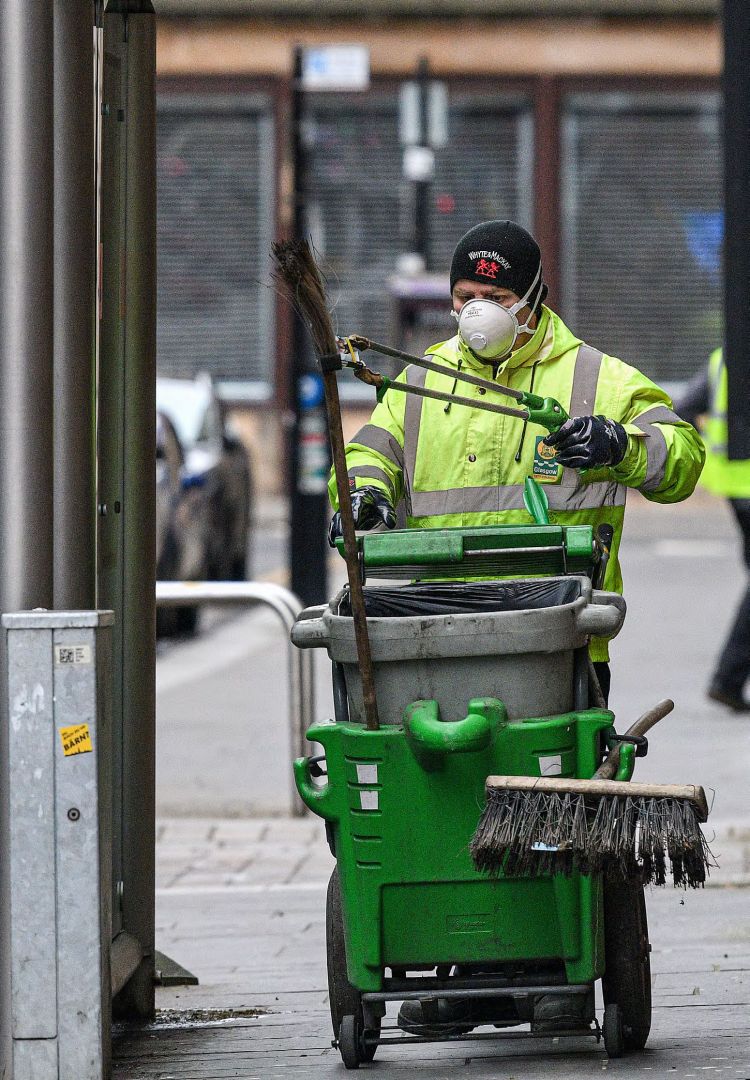
And we have published research on how insecure occupations have been associated with higher coronavirus mortality rates.
We have also warned of the dangers of a new class divide in access to flexible working, publishing research showing that people in higher-paid occupations are much more likely to have worked from home during the pandemic (60 per cent) than those in working-class jobs (23 per cent). The TUC’s research also shows that those who cannot work from home are significantly more likely to be denied flexible working options by employers after the pandemic.
We have used our communications to emphasise that the working class is diverse, both Black and minority ethnic (BME) workers and women are overrepresented in the lowest-paid jobs.
But the working-class experience of poor pay, long hours and class discrimination that the union movement has fought against remains all too common in today’s UK. And working-class households have been hit hardest by the pandemic.
We have continued to make the case that trade unions and collective bargaining offer the best way to deliver better working-class jobs and power.
3.5 Anti-racism
The TUC Race Relations Committee worked on a range of race equality issues, prioritising its efforts to improve the organisation and recruitment of black workers. The Race Relations Committee and the TUC continued the work to highlight the problems of racism in the UK by hosting the Stand Up to Racism online rally commemorating the International Day for the Elimination of Racism on Saturday 20 March 2021.
In pursuance of composite 6, the TUC has continued to highlight the impact of Covid-19 on Black workers. The General Council has highlighted health and safety as a race equality issue and intensified the campaign to ensure that employers carry out proper workplace risk assessments to protect Black workers who are over-represented in frontline jobs. The TUC has continued to campaign against no recourse to public funds, which places many migrant workers in a position of being forced to work during the pandemic irrespective of their health status.
In pursuance of composite 7, the TUC Race Relations Committee has continued to support campaigns for the decolonising of education, for an anti-racism education system and to promote the work being done by our education affiliates.
In line with resolution 26, the TUC Race Relations Committee and the TUC have continued to campaign for a public inquiry into the disproportionate deaths of Black workers in the pandemic. The TUC has continued to lobby the government to introduce mandatory ethnic pay gap reporting proactively and has worked with the Runnymede Trust to formulate a campaign calling on the government to enact the socio-economic duty in the 2010 Equality Act.
The TUC has continued to highlight and develop actions that affiliates need to take to support Black women in the workplace. As part of this work, the TUC produced a briefing on the issues currently affecting Black women at work and organised an event where Black women discussed what priorities trade unions should focus on to improve their work experience in the workplace.
Led by the General Council statement on anti-racism, the TUC and the Race Relations Committee have continued to campaign against the hostile environment. The TUC, along with other race equality organisations, continues to call for a public inquiry and has continued to campaign for a proper compensation scheme that delivers reparatory justice for those that suffered because of the hostile environment policy. The Race Relations Committee continues to support campaigns against deportations and is working with Equity on a campaign to remove the threat of deportation for one of its members.
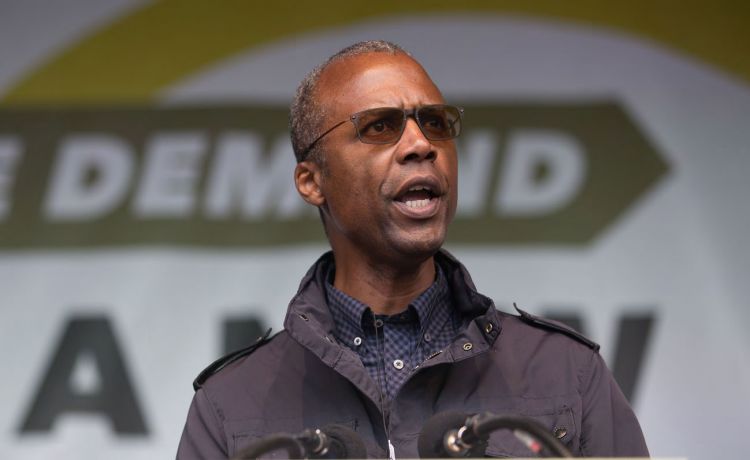
3.6 The Anti-Racism Taskforce
Congress 2020 established an Anti-Racism Taskforce comprised of General Council members and led by Dr Patrick Roach, general secretary of the NASUWT. The key aims include agreeing priorities for union organising and collective bargaining action to advance racial justice at work; and to increase the representation of Black trade union members at all levels of trade union democratic and employment structures. The Taskforce works with the TUC Race Relations Committee, and has four workstreams covering organising, collective bargaining, public policy and unions as employers.
The Taskforce undertook consultation at the TUC Black Workers Conference 2021 and digested the feedback to guide the direction of action. The Taskforce has also overseen a programme of polling and focus groups into the experiences of Black workers and to test solutions that employers, trades unions and the government can use to address the problem. There has been a wider programme of polling that has uncovered findings in relation to a significant reduction in hours worked by Black workers, in addition to the large rise in Black unemployment during the pandemic. The TUC has publicised this and other related analysis in the media.
The TUC lobbied government over the Commission on Race and Ethnic Disparities, coordinating a letter of 32 general secretaries to the prime minister, and coordinated a letter of unions, race equality groups and Baroness Doreen Lawrence. The latter was part of an ongoing process of dialogue and partnership building with civic society organisations.
The Taskforce is overseeing the development of a Black Leadership and Activism programme, led by Shavanah Taj, general secretary of Wales TUC, to develop leadership, organising and campaign skills among this new cohort and existing Black workplace reps and activists, and establish networks of Black trade union activists at regional and national levels. This will run alongside a campaign to recruit 1,000 new Black workplace reps.
The Taskforce also oversaw surveys to our unions affiliates on the topics of recruitment, retention and promotion of Black staff; collective bargaining; and organising. The surveys sought to drill deeper than previous audits in order to build up a clear picture of what was happening across the movement, and design solutions based on this evidence. Practical tools planned include toolkits on ethnicity pay monitoring and collective bargaining, for use in the workplace and negotiations with employers.
The next stage is building the public campaigns to recruit more Black workers to the movement, and to challenge racial injustice at work. To this end, the Taskforce is developing campaigns around anonymised job applications, and racial disparities at work more broadly, and working with our affiliates to encourage them to take more initiatives across a range of areas such as personnel, and driving up anti-racism activism.
3.7 Opposing the far right
In December 2020, the TUC published its report The Rise of the Far Right: Building a trade union response, written by Trademark Belfast, which highlighted the growing internationalisation of the far right and presented a series of recommendations and held a launch event. The TUC has developed a series of initiatives focused on building international union allies to exchange experiences and learning, and to develop a coordinated approach, working closely with sister centres and the European Trade Union Confederation (ETUC). In December, the TUC supported the European Trade Union Institute (ETUI) workshops for European trade unions on countering the far right. In June, a roadmap was adopted by the ETUC executive and will go to the mid-term conference for discussion. A working group will be set up to support its implementation. The TUC has been developing a programme in conjunction with Unite for working with companies that have sites in the UK and Germany, and discussing it with German unions, with the aim to develop a model for practical workplace-based action to counter the far right. The TUC has worked with Trademark to update the Winning Workplace Unity course materials and has run an initial pilot scheme with ASLEF.
3.8 Sexual harassment
Significant progress has been made in recent years to address the underrepresentation of women in our movement, and to end the everyday sexism and sexual harassment that women encounter. The TUC Women’s Committee has driven action on this issue and achieved significant progress but this is unfinished business.
This is why the TUC and its affiliated unions have initiated a programme of work that offers practical support on how to prevent, tackle and effectively respond to sexual harassment and drive widespread cultural change. This work is being led by TUC President Gail Cartmail, as chair of a new executive committee working group with support from the TUC Women’s Committee chair, Sue Ferns, who is vice chair of the working group.
The working group will have three aims that deliver on our shared commitment to equality, respect and a safe working environment for all:
- support union leaders to deliver meaningful cultural change that creates safe and inclusive working environments free from harassment for trade union employees
- ensure unions have robust internal policies and procedures to prevent and respond to sexual harassment within their organisations
- ensure cultural change is part of a broader endeavour to address the underrepresentation of women and minoritised groups within the trade union movement; identifying and tackling power imbalances; increasing women’s agency and power within union workplaces and the wider movement; and addressing inequality.
This programme of work is intended to energise, and make effective, the transformation demanded by women in our movement and progress the General Council statement of 2018 that recognised the role trade union leaders must play in delivering on our shared aim to end sexual harassment.
In autumn 2020, we held a series of leadership seminars for Executive Committee members on the role of leaders in transforming cultures to successfully tackle sexual harassment within the trade union movement. We have also developed a range of materials designed to support the trade union movement in embedding preventative cultures across trade unions. These will be supplemented by examples of positive practice from trade unions on the approaches they have implemented as employers.
The General Council is determined that the Executive Committee Working Group on Sexual Harassment will mark another important chapter in the history of our trade union movement’s fight for equality and the end of gender-based violence, and that it will be a powerful force for change, demonstrating that our unions are willing and able to take the lead and win change for women working in our movement and outside of it too.
In order to highlight the intersectional discrimination experienced by disabled women we have published a report setting out their experiences of sexual harassment at work. The report makes clear the extent and impact of sexual harassment that disabled women experience, with 7 out of 10 (68 per cent) having experienced this at work, and 1 in 8 (12 per cent) leaving their job as a consequence.
The TUC has continued to campaign for a new, easily enforceable legal duty requiring employers to take all reasonable steps to protect workers from sexual harassment and victimisation and for the ratification of the ILO Convention 190.
3.9 Equality Audit
The TUC Equality Audit 2020 provides analysis of the important work trade unions do to promote equality and tackle discrimination. The audit is conducted every two years and in 2020 it looked at collective bargaining for equality. The audit considers the range of equality issues unions address and the training and guidance they provide on these. The audit examines the processes by which unions work to achieve equality for all, provides examples of where unions have won for members and identifies areas for further work. The survey for the audit was conducted in early 2020 and the information in the report relates to the pre-pandemic period. The process of producing the report was interrupted by the pandemic, and is therefore being launched at the 2021 Congress instead of 2020. The report is supplemented by two surveys of union representatives on equality issues in the workplace and flexible working conducted in June and July 2021. The findings of these will also be launched at Congress. The report and survey results will be disseminated to unions in the autumn, with a focus on using the findings to support further improvements.
3.10 Protecting equalities
Women
The coronavirus pandemic has shone a stark light on the deep and persistent structural inequalities that cut across our country. Women have been disproportionately affected by the health, social and economic crises Covid-19 has created.
Women have borne the brunt of meeting rising care needs both at work and in the home, are at increased risk of domestic abuse, face restrictions accessing sexual health and family planning services, and are more likely to be affected by job losses at a time of economic instability. Nearly two-thirds of the UK’s 9.8 million key workers are women. They kept the health care system and our country functioning as the pandemic hit its peak. And 2.6 million of these women key workers earn less than £10 an hour. Discrimination has left many female key workers at disproportionately high risk of exposure to Covid-19, working without properly fitting personal protective equipment (PPE) or access to PPE at all. Pregnant women have faced escalated workplace discrimination over this period, losing pay or work, with their health and safety poorly protected.
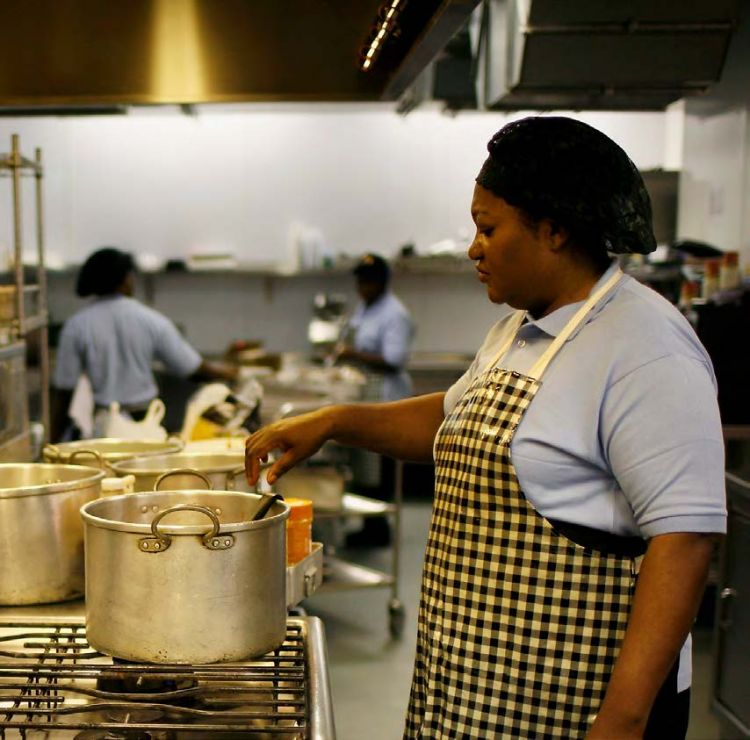
This is particularly the case for women whose lives are also shaped by other aspects of their identity such as Black women, disabled women, LBT+ women and working-class women.
The TUC’s reports Forced Out: the cost of getting childcare wrong and Working Mums: paying the price evidenced the devastating impact of disruption to schooling and childcare on maternal employment. We called for immediate changes to the parental leave system, urgent investment in the childcare sector and a day one right to flexible work. Ahead of the autumn budget, the TUC proposed a family stimulus package to boost levels of universal credit (UC) and double the rate of child benefit payments. The TUC also exposed the discrimination and unfair treatment of new and expectant mothers at work during the Covid-19 pandemic. New analysis by the TUC revealed intersectional discrimination experienced by BME women who are overrepresented in low-paid and insecure forms of work.
LGBT+ workers
LGBT+ workers are impacted by discrimination at work, in public and when accessing goods and services both at home and abroad. And this year we have seen, and prioritised addressing, the disproportionate impact Covid-19 has had on LGBT+ workers and the LGBT+ community.
We used intelligence gathered from LGBT+ workers and our affiliates on the impact of the pandemic on LGBT+ people to inform briefings sent to MPs, the Labour Policy Forum, and wider awareness-raising efforts including focusing on this topic at the 2021 LGBT+ Conference.
We continued to lobby the government, in line with resolution 30 from Congress 2020, for legislative change to the Gender Recognition Act (GRA) calling on the government to introduce a simplified, free, statutory gender-recognition process based on self-declaration, while maintaining the Equality Act 2010 as it stands. To this end we submitted a consultation response to the Women and Equalities Committee on reform of the GRA.
This year, for Trans Awareness Week, the TUC published a new online learning module on how unions can support non-binary workers and released new guidance on what trade union reps can do to address transphobic hate crime. We also published a video to highlight the important role trade unions have in protecting trans workers.
We have also continued to lobby for a legal duty to prevent sexual harassment of workers, including LGBT+ workers who report experiencing high levels of sexually harassing behaviours.
Disabled workers
Our research has shown that disabled workers are less likely to be in work and, when they are, they are paid less than their non-disabled peers. To address this, in line with resolution 31, we have continued to campaign for mandatory disability pay gap reporting and have highlighted this as a priority issue for government. We have highlighted this inequality in our response to the Work and Pensions Committee inquiry into the disability employment gap.
We have focused on the disproportionate impact Covid-19 has had on disabled workers and people, which has been particularly important with government data revealing that 6 in 10 of all deaths involving Covid-19 were disabled people.
A report focused on how pre-existing workplace barriers have been affected by the pandemic and the impact it has had on disabled workers. It found nearly one in three disabled workers who responded to our survey had reported being treated unfairly at work during the pandemic. It also uncovered issues disabled workers had getting and keeping in place their reasonable adjustments and so we have campaigned for stronger enforcement of reasonable adjustments.
The TUC continues its work calling for universal credit (UC) to be stopped and scrapped. However, as the badly executed benefit was the main mechanism for benefits during the pandemic, we wanted to ensure it delivered as well as possible for those who needed to access it during these difficult times. The TUC campaigned for the £20 uplift during the coronavirus pandemic to be made permanent.
Black workers
The pandemic has disproportionately impacted Black and minority ethnic (BME) people. ONS analysis has shown that BME people are more likely than white people to die from Covid-19, with this being strongly associated with demographic and socio-economic factors, such as place of residences and occupation.
We continued to push for the government to:
- publish an action plan to tackle the inequalities that BME people face, including in work, health, education and justice
- introduce mandatory ethnicity pay gap reporting and make employers publish action plans to ensure fair treatment for BME workers in the workplace
- ban zero-hours contracts, and strengthen the rights of insecure workers
- publish all the equality impact assessments related to its response to Covid-19 and be fully transparent about how it considers BME communities in its policy decisions.
And we called on government to step up efforts to prevent unemployment, which has a disproportionate impact on BME workers. This must include providing more support for struggling industries, as well as creating new jobs by investing in jobs in green infrastructure, transport and our public services.
3.11 Health, safety and regulation
Over the last year, the General Council has campaigned to ensure that the health, safety and welfare of workers is protected by strong union organisation and a network of health and safety reps with access to high-quality guidance and advice. We have challenged the government and safety regulators to improve workplace safety and use enforcement measures where safety rules are violated.
Supporting activists
The TUC produced a range of resources to support and equip health and safety reps, in response to composite 15. We carried out the 13th (and largest-ever) biannual survey of safety reps to understand their demographics, experiences and needs. The weekly health and safety e-bulletin Risks was published throughout the year, and an intensive series of webinars continued to focus on the response to the Covid-19 pandemic. Regular meetings of the Union Health and Safety Specialists (UHSS) group took place, discussing developments within occupational health and safety and providing a forum for unions to share ideas. A new working group of the UHSS is dedicated to tackling work-related stress.
On International Workers’ Memorial Day in April 2021, the TUC called for a public inquiry into the handling of the Covid-19 pandemic and remembered the lives of workers lost to the virus and other work-related injury and illness, launching new online campaign resources for members to mark the day.
Campaigns
The General Council campaigned on a wide range of health and safety issues during the year, with the response to coronavirus dominating our work. The TUC produced resources for affiliates and health and safety reps to support these campaigns, including on mental health, safer working from home and PPE – including the steer from resolution 65. In response, we re-established the Gender in Occupational Safety and Health (GOSH) group, and began a project dedicated to joining up our work on anti-racism and health and safety. These strands of work aim to help grow a more diverse base of safety representatives, as called for in composite 15.
The TUC continued in the role of Secretariat to the All-Party Parliamentary Group (APPG) on Occupational Safety and Health, chaired by Ian Lavery MP, engaging with parliamentarians and sector organisations on a range of issues. Working with the APPG, we have launched a new research project on asbestos in public buildings.
External bodies
The TUC continued to work with the Health and Safety Executive (HSE) during the year, making repeated calls for more resources for safety regulation in response to resolution 64. The TUC was represented on the board of the HSE by Kevin Rowan of the TUC, Ged Nichols of Accord and Claire Sullivan of the Chartered Society of Physiotherapy.
The TUC is represented on the Industrial Injuries Advisory Council by Doug Russell of Usdaw, Karen Mitchell of RMT and Daniel Shears of GMB. The three TUC nominees played an active role in the work of the Council, including advising on position papers on Covid-19 prescription and occupational cancer among firefighters.
3.12 Skills
Over the past year the General Council has campaigned for greater investment in skills to support jobs growth and reduce the numbers facing unemployment due to the economic fallout from Covid-19. This included giving greater priority to quality funded training for furloughed workers, as is the case in equivalent job retention schemes in other countries. Other key asks were an education and training guarantee for all young people and the development of a massive retraining scheme, especially for workers in those sectors hardest hit by the pandemic.
The government published the Skills for Jobs white paper in January and the Queen’s speech included a ‘Skills and Post-16 Education Bill’. The General Council highlighted that the white paper lacked the necessary scale of ambition to tackle the economic consequences of the pandemic and the impacts of Brexit, automation and the transition to a greener economy. The contribution of the General Council to the Green Jobs Taskforce has included a sharp focus on how adult reskilling and education and training for young people can support a just transition (see Section 2).
General Council members and TUC staff are represented on a range of skills bodies. Tony Burke, assistant general secretary of Unite, is a member of the National Manufacturing Skills Taskforce. Kevin Rowan, head of Organisation, Services and Skills at the TUC, is also a member of this taskforce and of the Strategic Transport Apprenticeship Taskforce.
3.13 Apprenticeships
There was a huge reduction in the number of people starting an apprenticeship during and immediately after the first national lockdown. In that period, recruitment levels were nearly half that recorded in the previous year and apprenticeship starts are yet to fully recover. The government introduced financial incentives to try to encourage more employers to recruit apprentices but did less to tackle increasing redundancies. The TUC and affiliated unions joined with employer and sector bodies to call on government to do more to guarantee apprentices the opportunity to complete their training if they were made redundant. The joint letter also recommended new flexibilities to the apprenticeship levy to boost the recruitment of apprentices, including permitting spending on high-quality pre-apprenticeship programmes and other measures.
The General Council has continued to highlight significant shortcomings in the government’s policy approach in other areas, including slow progress in tackling poor-quality apprenticeships and widening access to under-represented groups. To address this, government urgently needs to enforce apprentices’ employment and training rights, eradicate low pay, widen access, and guarantee minimum progression to an advanced apprenticeship.
In the budget, the chancellor announced a new flexi-job scheme that will be tested in certain sectors. In its response to the consultation, the TUC raised a number of concerns about the proposed model and the potential for apprentices to be exploited when working for multiple employers. To avoid this, the response called for a requirement that the design and regulation of any such scheme is agreed by employers and trade unions in the relevant sector.
3.14 Adult skills
The TUC pointed to the long-term decline in investment in adult skills when it gave oral evidence to the parliamentary Education Select Committee last September. In the last decade the government budget that funds adults to attend college courses was cut by a half. Government spending on the National Skills Fund will reverse only one-third of this reduction, according to estimates by the Institute for Fiscal Studies.
Investment in skills by employers has been in decline for the past two decades and the proportion not providing any training at all has increased sharply in recent years.
The General Council has criticised the limited skills strategy set out in the white paper. The ‘lifetime skills guarantee’ is much more restrictive than the adult skills entitlements that were abolished around 10 years ago. The new guarantee applies only to a prescribed list of level 3 qualifications and many adults are completely excluded from retraining because they have achieved this level of attainment. TUC research shows that the lifetime skills guarantee will also be taken up by far fewer adults as a result of the disappointing and counter-productive decision by the government to cut the grant for the Union Learning Fund.
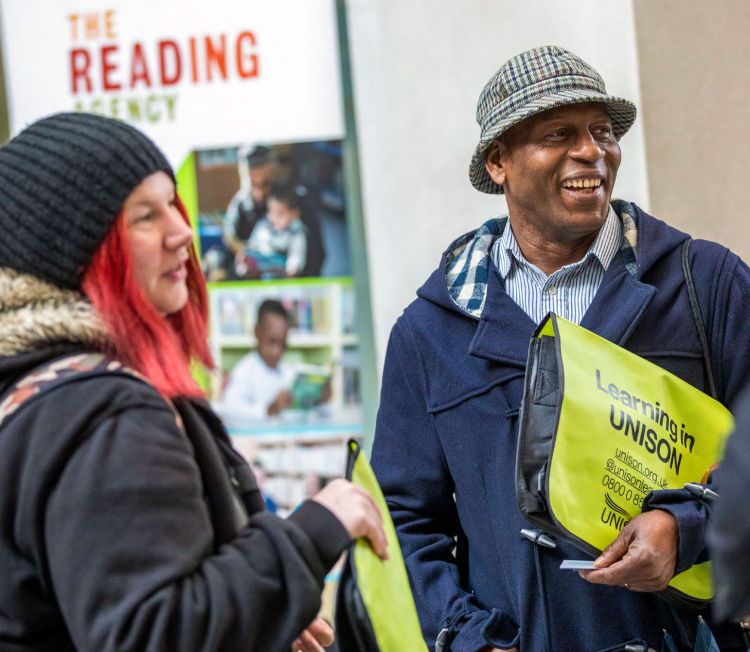
The General Council has called for a much more ambitious skills policy, including:
- a new right to retrain for everybody, backed up by personal lifelong learning accounts and a significant increase to the government’s adult skills budget
- new rights for workers giving entitlements to paid time off for education and training and access to regular skills/career reviews
- development of an all-age careers guidance service.
According to the OECD, the UK lacks the national social partnership arrangements that underpin high-quality skills systems in many other countries. The General Council had pressed the government to establish a national skills taskforce, but the white paper has set out an employer-led skills strategy with no mention of unions.
3.15 Union Learning Fund
Throughout the year Union Learning Fund (ULF) projects, with the support of unionlearn, continued to assist large numbers of workers to access high-quality learning and skills.
Due to the decision by the government to cut the grant funding, learner outcome data are available for only the first nine months of the 2020–21 operational year. However, these statistics evidence that the ULF and unionlearn were maintaining a massive return on the government investment and maximising support for workers facing the greatest barriers during the pandemic.
From April 2020 to January 2021, the General Council supported a total of 187,500 learners via the union route. This comprised take-up of learning and training facilitated through ULF projects and unionlearn and access to TUC Education courses for union reps. The learning outcomes for ULF projects were around 50 per cent greater that the original targets agreed with the government. Considering the impact of Covid-19 on access to workplace training and college courses, this was an outstanding performance.
The General Council launched a major campaign to save the ULF in October, which ran for a number of months in an attempt to get the government to reverse its decision. The campaign publicised a number of calls for action that people could take in support, including signing a national petition and contacting their local MP to add their voice to the campaign. Briefings were produced showing the range of evidence from independent evaluations of about the unique impact of the ULF and in particular how it supported adults most needing opportunities to upskill and retrain.
Further briefings were produced highlighting wide-ranging support from employers, including household names such as Tesco and Heathrow Airport. Manufacturing employer bodies, including Make UK, wrote a joint letter to the government calling for the decision to be reversed. The leading HR body, CIPD, also lent its voice in support of the campaign.
A new research report by the University of Exeter showed that in the latest year the ULF was generating an overall economic boost of around £1.5bn.
A subsequent report by the Learning and Work Institute recommended that the government should continue to invest in the ULF as part of its central strategy to engage more adults in upskilling and retraining.
The campaign prompted a number of parliamentary debates and questions to government ministers. These culminated in a Westminster Hall debate in November, initiated by Lilian Greenwood MP. The House of Commons Library published a briefing pack for MPs in advance of the debate, which detailed the extensive parliamentary and media coverage of the campaign to save the ULF.
Stay Updated
Want to hear about our latest news and blogs?
Sign up now to get it straight to your inbox


